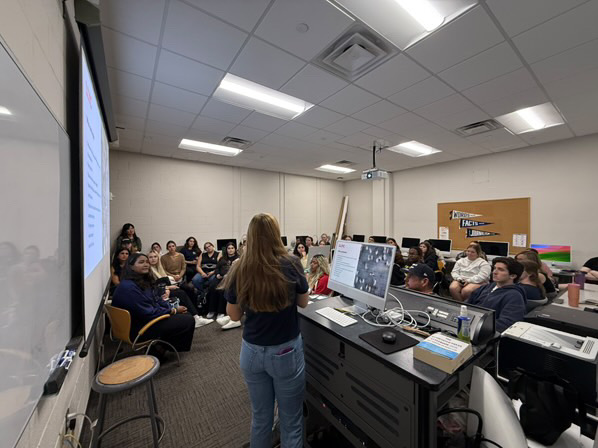CETL Learning Tips: Study a little bit, a lot
Welcome to the Learning Tips Series! Every other week, I, with a little help from my OU friends, will provide quick but powerful tips to get the most out of learning in your classes and beyond.
It might seem early to use the “E” word, but to avoid stress and learn for real, now is the time to start thinking about exams or whatever project comes at the end of the semester. Starting now gives time for ideas to solidify permanently in your brain. In her Learning How to Learn Coursera course, OU’s Dr. Barbara Oakley compares it to building with bricks: we can only build one layer at a time because the mortar that makes the bricks stick together needs time to dry. If you try to build a whole brick wall in a couple of hours, you’ll end up with a messy pile. (Tip: Oakley developed a related OU course, ISE 1170: Learning How to Learn.)
In popular study on the most effective ways to remember what you learned, the top two were practice-testing and distributed practice, which means practicing a little bit often and over time. A little bit goes a long way — even 15 minutes a couple of times a week. Not only does the active time help your brain make the connections required for learning, but it also ignites unconscious learning. In other words, your brain continues learning that material even when you’re not paying attention to it. Now that’s smart!
Even if your schedule is tight and you have a ton of classwork up until Study Day, these are a couple of ways that any of us can take advantage of learning over time:
- Immediately after class, take five minutes to reflect on what you just learned. After class, intentionally record answers to three questions: (a) what is the quick story of what I have learned in this class session; (b) how does this fit into the larger picture of this class; and (c) what questions do I have? Dr. Stephen Carroll shared this strategy at OU a few years ago, and his students benefited greatly from this small change. If you have back-to-back classes, answer these questions with voice-to-text on your phone while you walk to your next class. Speaking of which …
- Make your phone your learning friend. Phones are perfect for small, frequent practice whenever we happen to find some time. Start simple: Pick a familiar, convenient note-taking app (I like Google Docs), create a note for each class, and use it just for this on-the-go of practice. Then, branch out: if you have a lot of vocabulary, formulas or other concepts to remember, use an app like Quizlet to be your portable flashcards. When you’re tired of making your fifth trip down the Instagram feed, those quick study opportunities are there.
These strategies take little or no extra time, but they work best if you do them a least a couple of times a week. Make these the things you do before you go to bed (also good for memory), the practice at the beginning and end of your school week, and whatever time you find in between. You may just find this gives you the chance to enjoy what you’re learning!
Christina Moore
Center for Excellence in Teaching and Learning
Find more Learning Tips at oakland.edu/teachingtips.





